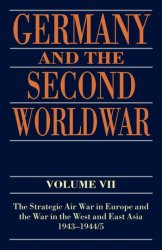Fourteenth-century Oxford was famous for its attention to the relation of semantics and logic to the natural sciences, particularly Aristotelian physics. The Mertonian ‘‘Calculators’’ were especially concerned to explore the relation of mathematical analysis to questions about movement through media like time and space. A natural result of this was the philosophical investigation into the ultimate structure of spatiotemporal reality. The common view had long been that space and time are both infinitely divisible, but by the 1320s, sufficient disagreement had arisen to lead to three classes of ‘‘atomists.’’ The first, of whom Chatton was most prominent, held that any continuum, whether spatial distance or temporal duration, was made up of a finite number of indivisible points, or atoms. The second group, of whom Henry Harclay was best known, held that a continuum was composed of an infinite number of indivisible points, each conjoined to the other without space in between. The third, associated with Grosseteste, argued that the infinite number of atoms making up the continuum were mediately conjoined. Divisibilists rejected indivisibles in physical reality, while admitting immaterial indivisibles such as the intellectual soul. Ockham and Wodeham were among the most thoroughgoing of the indivisibilists, holding that an indivisible particle of spatiotemporal reality was simply a contradiction, a term we can imagine, like ‘‘square circle,’’ without possible referent. Others, the majority, were willing to countenance indivisibles as real, but unwilling to assert their uniform presence as the sole constituents of spatiotemporal continua. Wodeham’s position is noteworthy for two reasons. First, his Tractatus de indivisibilibus serves as a guidebook to almost all the major positions and arguments in play in Oxford, and second, because his vigorous attack on atomists seems to have effectively ended the matter, at least until the 1360s. Wodeham collected a mass of arguments against indivisibles, cataloging every possible philosophical problem that can arise from supporting the infinite divisibility of space and time. Indeed, Wodeham eagerly wades into the Zeno paradoxes familiar to philosophy students today, exploring the soundness of Aristotle’s resolutions of these classic problems. An earlier Quaestio de divisione et compositione continui exists as evidence for the evolution of Wodeham’s thought; in it, he articulates the idea that all infinite series must be equal, when considered as infinite. Imagining one infinite series beginning early in the day, and another beginning at the end of the day, we are constrained to admit that the former has more constituents than the latter, but as infinites, the two are equal. In the later Tractatus, though, Wodeham shifts, arguing in Q.5 that one infinity can be greater than another, a position that had earlier been argued by Grosseteste.




 World History
World History









